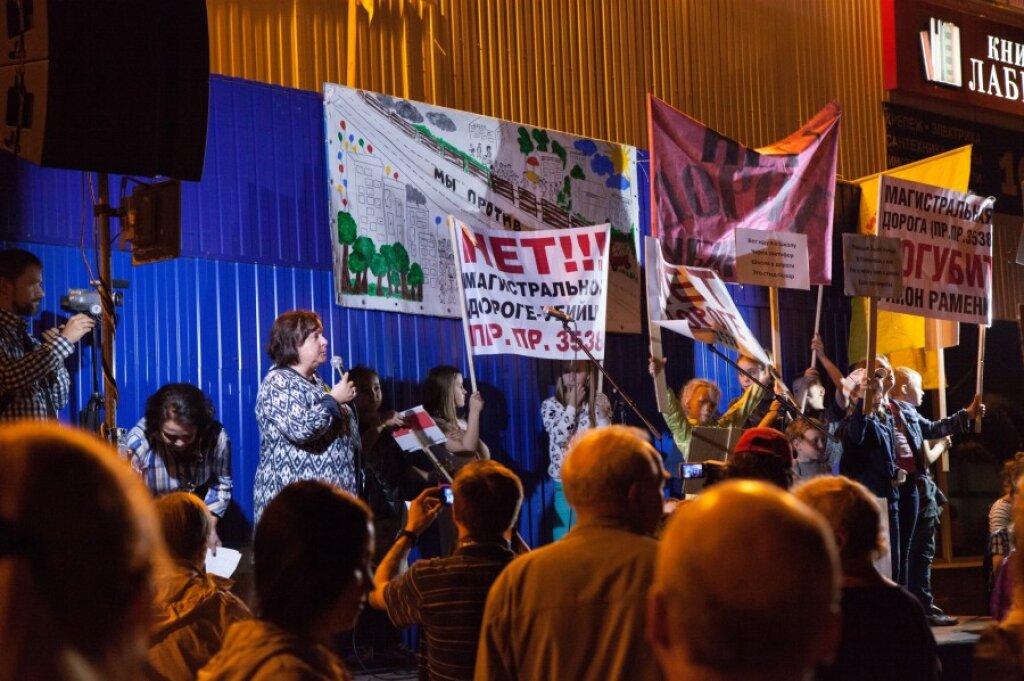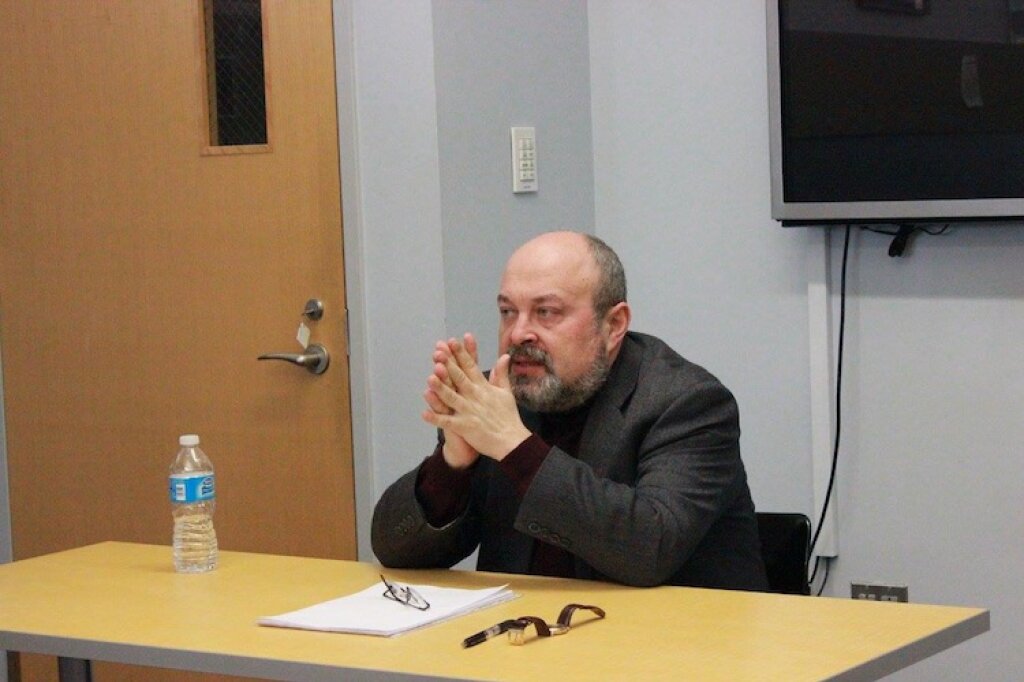On December 6th, 2021, the Jordan Center hosted Sasha de Vogel for her talk “No Final Victories: How Reneging Affects Concessions to Low-Capacity Protest Campaigns in Moscow, Russia” as part of the Jordan Center’s joint research workshop with the Higher School of Economics. De Vogel is a postdoctoral fellow at the Jordan Center. Her research focuses on the politics of authoritarian regimes and collective action, particularly in Russia and the post-Soviet region. She received her Ph.D. in Political Science from the University of Michigan in 2021 and holds an MA in Russian, Eastern European, and Eurasian Studies from Columbia University. The full event recording is available on YouTube here.
De Vogel begins her talk by discussing the many ways that authoritarian regimes respond to public expressions of popular grievances, including protest. She focused on concessions, promises of future action that allow the government to respond—in reality or in appearance—to the grievances that cause protests, even if such protests are of low capacity (smaller groups). De Vogel explained that the Putin regime is not particularly responsive to protest, despite the fact that civic protests have been increasing and “performative legitimacy”––maintaining the appearance that the government is actually seeking to solve these grievances instead of wanting to simply make them go away––is important. However, though highly politicized protest campaigns are unlikely to result in concessions, studies focused on the outcomes of less politicized protest campaigns in Russia are lacking, making any sort of response to protests appear unpredictable. De Vogel studies these less publicized campaigns partly because of this apparent unpredictability.
De Vogel uses data from municipal protest campaigns in Moscow, Russia in her research. These campaigns targeted the city government in response to a variety of issues, such as a plan to build a road through a public park, poor work conditions for snow removal workers, and kindergarten registration issues. De Vogel’s data shows that the city of Moscow made concessions to these low-capacity campaigns once every two weeks, but these concessions often went partially or completely unfulfilled. This reneging undermines concessions, and de Vogel found that 45% of concessions had a negligible effect within 2 years.
In her research, de Vogel asks two questions: to what extent do concessions to low-capacity protest campaigns impact policy; and why are some concessions to low-capacity campaigns implemented and others undermined by reneging? Concessions have two main forms. The first is one-off (low constraint) resolutions that address only the given conflict, do not affect actors in settings beyond the conflict, and do not prevent future conflict. The second is constraining resolutions that address underlying causes of grievances, affect individuals not part of the conflict, and attempt to prevent conflict from recurring. She finds that more constraints often lead to more reneging, and theorizes that reneging is sometimes the deliberate failure of the government to implement concessions.
De Vogel gathered data from 66 protests between September 2013 and September 2018, which led to a total of 795 events and 122 concessions. Some of the most common protest topics were illegal construction developments in public parks, evictions and failure to provide housing to designated groups, and the construction of nationalist monuments and churches. Of the 122 total concessions, 115 occurred within two years of the protests. Of these 115 concessions, 56.5% were constraining concessions, 50.4% of protests demobilized 30 days after concessions were made, and 44.3% of concessions were reneged on. These concessions were made after approximately 9 events.
De Vogel found that low constraint concessions are reneged on 32% of the time, whereas high constraint concessions are reneged on 53.8% of the time. High constraint concessions therefore carry a 170% increased chance of reneging. De Vogel also found that, contrary to her expectations, demobilization is associated with a lower rate of reneging – so the faster protestors demobilized, the more likely concessions were actually implemented. Protest demobilizations after 30 days led to a 71.1% lower chance of reneging. These varying rates of concessions and reneging were partially due to the fact that more expensive concessions are more difficult to achieve, making them more vulnerable to reneging.
To conclude, de Vogel explained that concessions to low-capacity protest campaigns allow the government to respond to grievances, though that response is often performative. Protestors have a limited ability to influence the implementation of concessions. The state prefers one-off conflict resolution and often reneges on concessions that would constrain the government and systemically resolve grievances.



